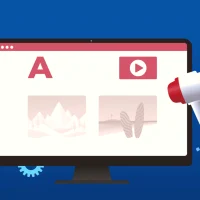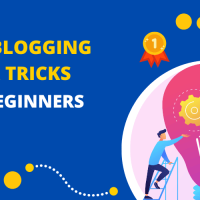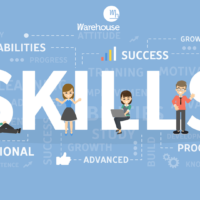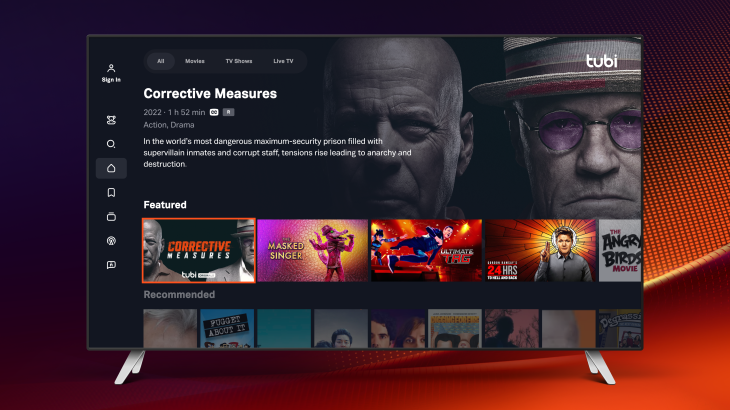Understanding the Importance of People Skills
People skills, often termed as soft skills, involve the aptitude to interact effectively and harmoniously with others. From the workplace to social gatherings, these skills come into play with every interaction, providing a medium for clear and effective communication. By acknowledging verbal and non-verbal cues, we foster mutual respect and understanding, emphasizing the central role of people skills.
In a professional landscape, people skills tend to bridge the gap between technical know-how and effective teamwork. While technical skills may get you in the door of opportunities, people skills, such as the ability to manage team dynamics or negotiate effectively, often decide the pace of progress. They make working in collaboration less of a chore and more of a seamless process, underscoring the importance of people skills in everyday life.
People Skills as a Key to Success
In the ever-evolving realm of the workforce, being equipped with technical knowledge or having a high IQ doesn’t necessarily guarantee success anymore. In fact, there’s another vast palette of skills often overlooked – ‘people skills’. This encompasses attributes such as effective communication, empathy, team cooperation, and emotional intelligence. They play a prominent role in not only providing a pathway to success but also paving the lane for a sustainable and thriving career.
These skills enable individuals to connect and collaborate efficiently with their peers, subordinates, and superiors alike in a professional environment. With strong people skills, you can seamlessly manoeuvre through complexities, work within diverse teams, motivate others, and classically resolve conflicts. In essence, they layout the framework for nurturing a harmonious working environment and fostering the kind of positive relationships that directly contribute towards achieving individual as well as organizational goals.
Enhancing Communication and Collaboration through People Skills
Building strong interpersonal relationships at work is crucial, and one of the tools to achieve this is good communication. To convey information correctly and efficiently, one needs to employ top-notch people skills. These skills not only allow for the clear articulation of ideas but also ensure the accurate interpretation of information from others. It includes active listening, clear speech, and respect for others’ viewpoints, further enabling the building of mutual trust and strong connections among team members.
Pairing communication with collaboration results in a team that can effectively work together towards a common goal. People skills come into play here, promoting mutual understanding, facilitating the division of tasks, and fostering a culture of sharing and support. Employees who master these skills can navigate group dynamics and individual differences. This leads to an environment where everyone’s strengths are harnessed and collective potential is optimised to achieve team objectives.
Impacting Goal Setting with Effective Interpersonal Relationships
The symbiotic relationship between goal setting and interpersonal skills is undeniable. Effective interpersonal relationships provide a supportive environment that is conducive for setting and reaching ambitious goals. When equipped with robust people skills, individuals have the ability to communicate their objectives clearly and rally support from those around them. This, in turn, reinforces the process of goal setting as it not only devises a pathway for reaching objectives but also cultivates a collaborative atmosphere boosted by collective efforts.
Interpersonal competencies such as active listening, clear communication, empathy, and mutual respect form the cornerstone of any effective relationship. When these skills are employed in the context of setting professional or personal goals, they foster an environment of transparency and mutual understanding. This facilitates the delineation of clearly defined responsibilities, manageable timelines, and realistic targets. Hence, the interaction between interpersonal relationship skills and goal setting forms a synergistic bond that significantly contributes to higher productivity and ultimate goal attainment.
Influence of Emotional Intelligence on Goal Achievement
Emotional Intelligence, often referred to as EQ, plays a crucial role in achieving goals, whether personal or professional. Having a high EQ implies the ability to understand, express, and regulate one’s emotions and to handle interpersonal relationships judiciously and empathetically. It is these capacities that allow for efficient problem-solving strategies and decision-making processes, both indispensable for meeting objectives successfully.
On the flip side, low Emotional Intelligence often leads to miscommunication and misunderstanding, obstacles that can significantly hinder progress towards goal realization. EQ fosters self-discipline, a trait necessary in resisting distractions and maintaining focus on the end-game. Additionally, it aids in experiencing and managing stress effectively, further enhancing productivity and goal achievement. A balanced EQ thus serves as a powerful tool in making striving for and reaching goals a smoother journey.
Leadership Skills: The Bridge Between People Skills and Goal Achievement
Leadership skills function as a bridge connecting people skills and goal achievement. These skills, which include communication, decision-making, and problem-solving, allow individuals to guide themselves and others towards the realization of set objectives. Being able to lead implies the mastery of people skills; thus, creating effective interpersonal relationships, promoting teamwork, and navigating conflicts. The complex task of leading involves a multi-faceted skill set that incorporates both hard and soft skills, with an emphasis on the latter.
Effective leaders comprehend the significance of their team members in the achievement of goals. They value the perspectives, opinions, and efforts of each team member, acknowledging the collective effort required for success. This appreciation embodies the pinnacle of people skills, as it necessitates empathy, understanding, active listening, and the ability to communicate effectively. Therefore, leadership skills not only involve directing but also fostering an environment that encourages collaboration and mutual respect among team members, facilitating the path to goal accomplishment.
Conflict Resolution and its Impact on Reaching Goals
Navigating the path to goal achievement is often riddled with many challenges. A prominent one among these is conflict: between team members, with regards to strategies, or even conflicting objectives. Appropriately using the skill of conflict resolution can significantly streamline the journey towards reaching goals. When effectively employed, it fosters an atmosphere of mutual respect and understanding, which can facilitate mutual cooperation and increased productivity.
In the professional arena, conflict often arises due to differing viewpoints, competitive environments, or hierarchical dynamics. The ability to successfully resolve these conflicts not only provides the ability to overcome these obstacles but also improves interpersonal relationships, facilitating a more harmonious and cooperative work environment. This, in turn, can accelerate the process of goal achievement, as team members can contribute optimally, without being hindered by disruptive disputes or disagreements. Furthermore, this skill reflects the individual’s ability to maintain an objective perspective and balance competing priorities, vital traits for ensuring consistency and effectiveness in reaching the set objectives.
Building Trust through People Skills for Goal Attainment
Trust plays a pivotal role in forging sturdy relationships, both personal and professional. Harnessing people skills not only aids in building a cordial relationship but also instills a sense of trust which is fundamental for goal attainment. Trust shapes the underpinning of any successful collaboration, by paving way for clear communication, sharing of ideas and valuable insights, thereby bridging the barrier of misunderstandings. When trust is established, team members or partners become more open to suggest innovative ideas, as the fear of being misunderstood or misjudged is lessened, leading to the facilitation of goal realization.
In a leadership role, use of effective people skills to foster trust can result in increased productivity and goal achievement. Leaders who are able to build trust can drive team spirit, raise morale, and increase commitment towards collective objectives. Trust earned through displaying strong people skills such as honesty, integrity, and transparency creates a supportive environment conducive to attaining the desired goal. Adopting such people skills to cultivate trust doesn’t just have an impact on individual performance, but can significantly elevate the dynamics of a team as a whole on the journey to goal fulfillment.
The Role of Empathy in Achieving Personal and Professional Goals
Empathy, often overlooked, is a crucial people skill that drives success in personal and professional spheres. It’s more than just understanding and sharing the feelings of others. Empathy enables us to connect with individuals on a deeper level, greatly improving our relationships. In professional terms, it helps to foster a positive work environment, make better decisions by understanding different perspectives, and motivates employees, thereby contributing significantly toward achieving organizational goals.
Furthermore, empathy also plays a vital role in personal goals. As a powerful tool of emotional intelligence, it enhances our communication and interaction with others, allowing us to understand their needs, desires, and struggles more effectively. This comprehension further aids us in tailoring our approach, whether it’s lending a supportive hand or offering constructive criticism, to set, manage, and help each other in our pursuit of personal and shared goals.
Leveraging Networking and Negotiation Skills for Goal Realization
Networking can be a powerful tool in achieving both personal and professional goals. Social structures provide a platform for exchanging ideas, seeking advice, and extending help. In a business setting, it is the creation of partnerships that can significantly propel a company’s growth. An effective networker understands the importance of nurturing relationships, not just using them transactionally but generally seeking to contribute positively to the people around them.
On the other hand, negotiation skills are also crucial. Every day, we often find ourselves in scenarios requiring negotiation, such as agreeing on a project timeline with team members or sorting out a disagreement with a colleague. A competent negotiator recognizes the essence of compromise, balancing assertiveness and empathy, and robust communication. Combining networking and negotiation skills can be quite promising, offering a comprehensive approach to goal realization.


























